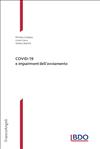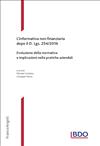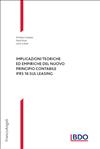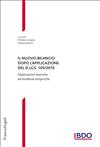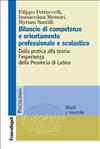
The International Accounting Standards Board (IASB) in January 2020 is-sued “Classification of Liabilities as Current or Non-current”, which amended IAS 1 Presentation of Financial Statements. The main purpose of the amend-ments regards the classification of financial liabilities and how to classify them under particular circumstances. The amendments are proposed to be effective for annual reporting periods beginning on or after 1 January 2023, with earlier application permitted. Due to feedback received and enquiries about the classification of financial liabilities with financial covenants, in December 2020 the IFRS Interpretations Committee (IFRIC) published a tentative agenda decision in response to such feedback. Subsequently, in October 2022 the International Accounting Stand-ards Board (IASB) published a document titled “Non-current Liabilities with Covenants (Amendments to IAS 1)”. The purpose of this document is to clarify the conditions with which an entity must comply within twelve months after the reporting period affect the classification of a liability. The amendments are ef-fective for reporting periods beginning on or after 1 January 2024. The classification of financial liabilities as current or non-current is an im-portant consideration for financial reporting purposes, as it can have a significant impact on a company’s financial statements and financial ratios. Current liabili-ties are those that are expected to be settled within one year, while non-current liabilities are those that are expected to be settled beyond that time frame. The purpose of the following review is to analyse the main impacts of the amendments on the classification of the financial liabilities with covenants and the project’s history and timeline.
